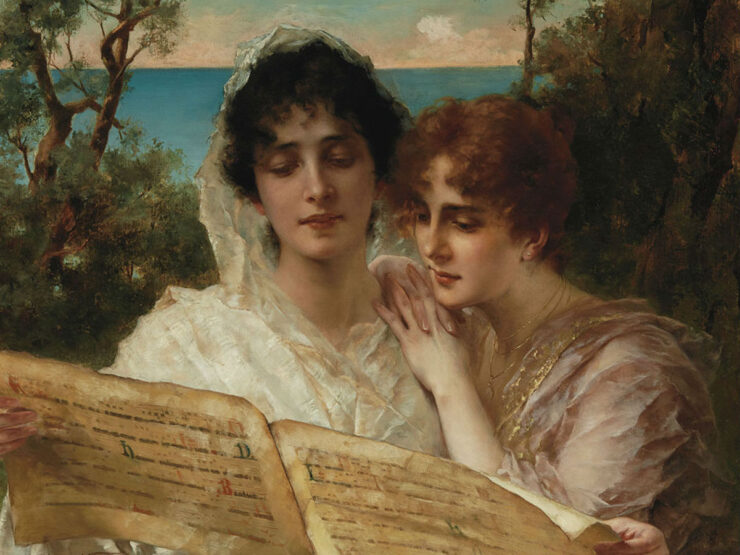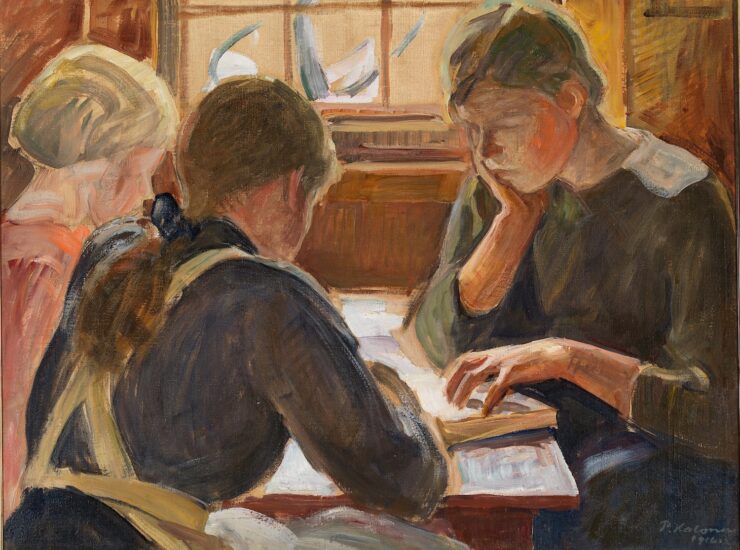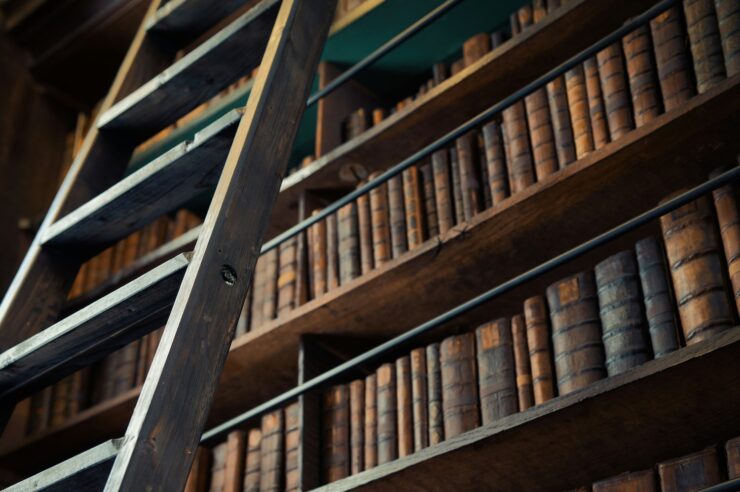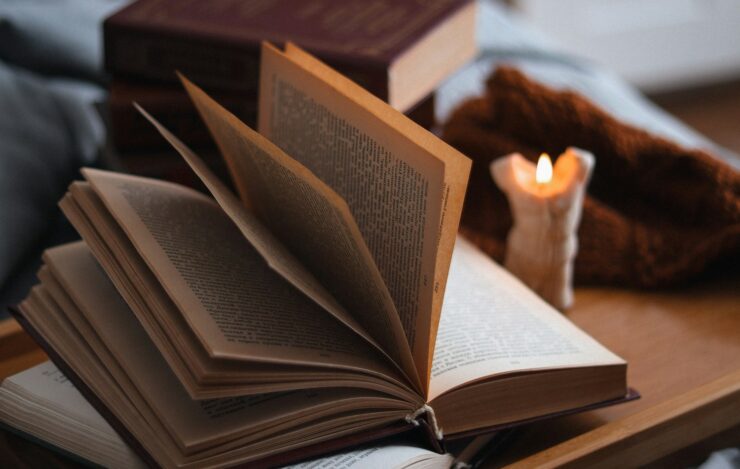A brief and wildly incomplete list of moments in stories (and songs) that call up a mood I would like to experience repeatedly and on demand:
- The lighting of the beacons in The Return of the King
- “Kiss me, Hardy!” (Code Name Verity)
- Starbuck and Apollo punch it out (Battlestar Galactica)
- Neko Case singing, “I’m holdin’ out for that teenage feeling”
- Kelly Link’s “Prince Hat Underground”
- Samantha Crain’s “Songs in the Night”
- “Peaches and plums, motherfucker.” (The Magicians)
- Gabrielle Zevin’s Tomorrow and Tomorrow and Tomorrow
A different person might call what I’m seeking “vibes,” but for me vibes and moods are different. Vibes are atmospheric sensations, a setting, a type that you always enjoy, a plot element used cleverly. Moods are feelings, are what I want these elements and more to evoke in me: something bittersweet, something hopeful but in need of help; something that is full of love but complicated by circumstance; something self-aware, lonesome, yearning.
But how does a person go in search of the precisely right book that will incite a feeling?
This is part of a bigger question, one too large for any single column: How do you find the books that you should be reading? (By should, I mean the ones that feel made for you, not “should” in any sort of prescriptive, good-for-you way.) How do you know? How can you slice through the layers of language and description that is designed for a purpose—to market the book—and figure out whether the book itself will speak to you?
I am sorry to say this is not a question for which I have an answer—just one I want to discuss.
We’re in the midst of an interesting moment in how books are marketed and described. Tropes (as fandom folks know the word) are everywhere; you can hardly scroll through bookish Twitter without encountering an image over which a series of words and phrases have been layered, often including things like “just one bed,” “enemies to lovers,” and the like. For some readers, this is gold; this is how they find what they want, how they can swiftly and easily identify the things that make books tick for them. But it’s tricky: your “dark academia” might be my “They’re at a school, but where’s the darkness?”
I want to know more about who I’m about to spend long hours with. Sure, I want types sometimes: a smart-mouthed badass (Gideon, Starbuck, Buffy) or a hapless sensitive knucklehead forced to grow up (Quentin Coldwater) or a complex parent (Essun) or noble young heart struggling to do the right thing (Bitterblue, Tess) or a character who comes out of left field and makes me love them despite all the reasons they are not my usual character type (Amos Burton, Tomorrow and Tomorrow and Tomorrow’s Marx). But even if I saw these things used as phrases, I wouldn’t know for sure that the books are for me. How do the characters fit into their worlds? What kind of stories are we talking about? Am I going to feel the things I want to feel?
How can you ever fit that into a pithy little phrase? Into a blurb? Into cover copy that speaks to every possible reader of a book?
It’s impossible. Everyone seems to have a story about a book that sounded perfect for them, but once they got past the cover it was all wrong. There are books I love dearly that I read despite, not because of, the cover or the cover copy. But all the details of a book, from the title to the text on the back to the font used for the title, all those things were chosen for a reason. We just can’t know if that reason aligns with our reasons.
We can, of course, talk to friends, or dig into Goodreads or Storygraph or other online reviews, though then you add layers to the issue: you also can’t know if the person whose review you are intrigued by has the same tastes and bookish desires that you do. (I like to read one-star Goodreads reviews of books I absolutely adore; I like seeing what other people hate in them. Ditto five-star reviews of books I hated. Tell me more! Tell me what I didn’t see!)
Buy the Book
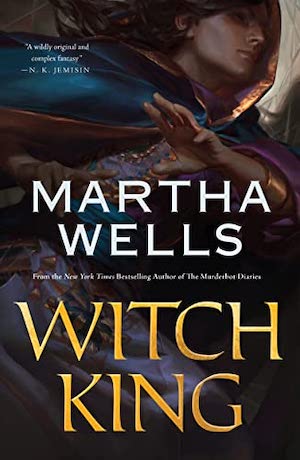

Witch King
What I am saying here is, in essence, that being a reader is not just a matter of picking up a book, thinking Oh, that looks interesting, and taking it home and reading it. If you are reading this column, you probably know this. But what does it mean—what does it entail—to find the things you’re most likely to love? Do you read blurbs? Do you read reviews? Do you trust the internet or the star rating on one site or another?
Given infinite time (and infinite books), I think I would like to create a sort of endless Venn diagram of book moods. You start with one bubble. Let’s say you put into it The Fifth Season. What do you love best about that book? The structure? The different voices? The way it feels hopeful and apocalyptic at once? The way Jemisin threads so many different moods and feelings, rage and love and fear and everything else? What do you want it to overlap with? Could one bit of the diagram overlap with the complex parental feelings of I Keep My Exoskeletons to Myself? Could the fragile community aspect share common ground with Megan Giddings’ The Women Could Fly? Is there anything else that has the kind of geological science fantasy vibes this series gets into? (This is a serious question.)
Are there connections that aren’t just plot, aren’t just types, but moods? In which books does the world end but you feel kind of okay about it? (Appleseed is one of those for me.)
The understated but devastating heartbreak of Code Name Verity has an overlapping point with Never Let Me Go. The elaborate swirl of post-catastrophe small-town life in Wendig’s Wayward shares space with some episodes of the series adaptation of The Last of Us.
But these are all books I’ve read. It takes a certain kind of magic to figure out these moods for things I’ve not read yet. It’s why making an on-deck stack of things I want to read next so rarely works. The mood is wrong. The vibes are off—not forever, but for now. It’s why sometimes a book buried on the shelf seems to whisper a certain kind of song. If only I could slip on a literary mood ring, a cheap color-changing stone from a vending machine, the kind you purchase for a couple of quarters. Maybe it matches up with book colors. Maybe it just knows.
How do you choose a book for a mood?
Molly Templeton lives and writes in Oregon, and spends as much time as possible in the woods. Sometimes she talks about books on Twitter.










